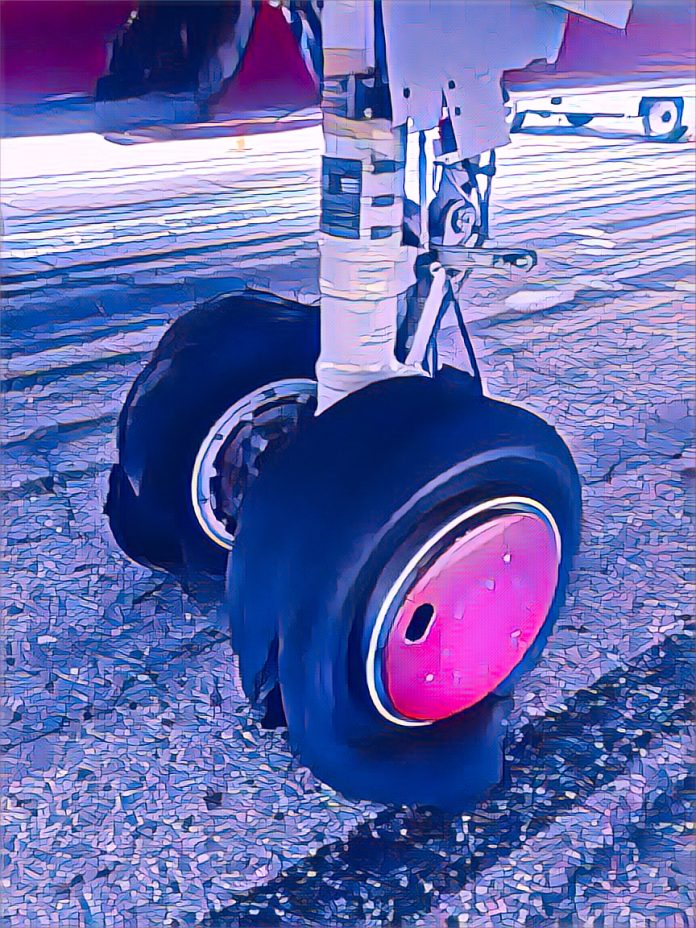A Max Air flight carrying 119 passengers and six crew members was grounded on Sunday evening when its tyres burst during takeoff. The Boeing 737, identified as flight NGL1649 with registration 5N-ADB, was departing from Yola Airport en route to Abuja. The incident unfolded as the aircraft was preparing for takeoff.
According to a statement released by Bimbo Oladeji, Director of Public Affairs and Consumer Protection at the Nigerian Safety Investigation Bureau (NSIB), the aircraft experienced a significant issue with its rear gear tyres. The statement clarified that two of the rear tyres burst during the initial phase of takeoff. While the plane attempted to taxi off the runway, the remaining two tyres also burst. This caused the aircraft to become completely disabled.
Fortunately, the NSIB reported no injuries or fatalities resulting from the incident. The statement detailed the sequence of events, stating that a loud bang was heard during the takeoff roll. The noise was later identified as the tyres bursting. Despite the severity of the incident, all 125 individuals on board were unharmed.
A response team from the NSIB, led by Director General Captain Alex Badeh Jr., is scheduled to investigate the scene of the incident the following morning. Their task will be to determine the exact cause of the tyre failures and to assess any contributing factors that led to the aircraft’s grounding.
This recent event adds to a series of concerns surrounding Max Air. Earlier in 2023, the NSIB had criticized the airline for its handling of a previous serious incident. On May 7, 2023, an aircraft operated by the same airline experienced issues upon landing at Nnamdi Azikiwe International Airport in Abuja. The NSIB report from that incident revealed that the airline had overwritten crucial data on the Cockpit Voice Recorder (CVR), which could have provided valuable insights into the occurrence.
The 2023 report also highlighted that Max Air had disregarded a directive from the Nigeria Civil Aviation Authority (NCAA). The directive, known as NCAA/FSG/AOL/19/03, required airlines to adhere to specific protocols regarding the continuous recording of CVR information. The NSIB’s findings suggested that Max Air had neglected these regulations, leading to further scrutiny of its operational practices.
On the day of the recent incident, the Max Air aircraft, NGL1649, had departed from Abuja and landed in Yola. After a brief ground time of approximately 30 minutes, the plane was preparing to return to Abuja. During takeoff, the aircraft’s landing gear was left extended for three minutes to cool down due to the high temperatures at Yola Airport. However, the landing gear malfunction was reported when Nigerian Air Force personnel, stationed at the Air Force Hangar near runway 35, observed an object resembling a tyre falling from the departing aircraft at 2:08 p.m.
This incident highlights ongoing concerns about the maintenance and safety practices of airlines operating in Nigeria. The NSIB’s forthcoming investigation aims to provide clarity on the factors leading to the tyre bursts and to ensure that appropriate measures are taken to prevent similar occurrences in the future.



